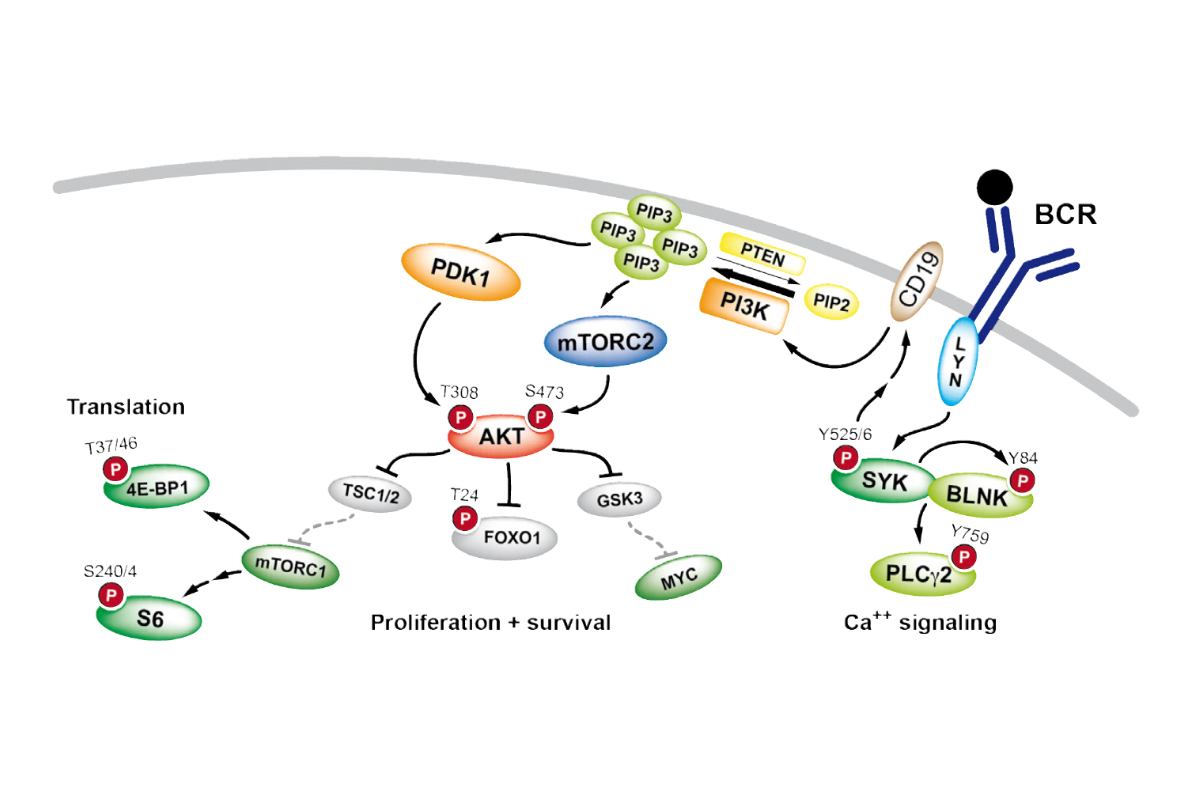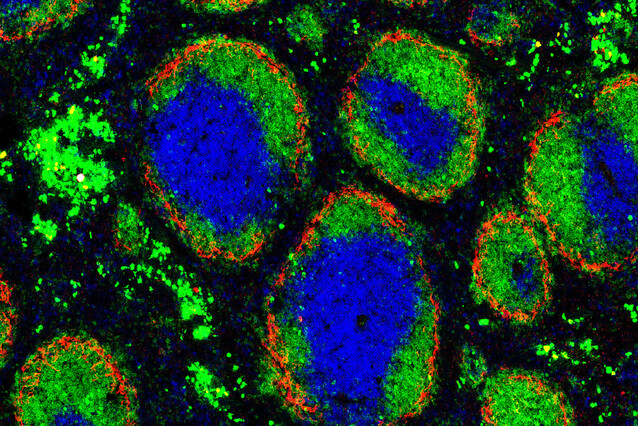A novel key to humoral immunity: mature B cells require Pax5
The lab of Meinrad Busslinger has studied for decades how the transcription factor Pax5 steers B cell development. A new paper in the journal Science Immunology now shows that Pax5 is not only a driver of B cell development, but is also vital for sustaining mature B cells and their function.
Fundamental research teems with stories of scientific ventures that twist and turn for extended periods of time before they come to an end. The story that the lab of Meinrad Busslinger published now in the journal Science Immunology, however, took epic dimensions even by these standards: no fewer than 15 years ago, immunologists in the lab started investigating a possible role of the transcription factor Pax5 in the development of mature B cells.
It started with an exciting observation: most B cells of mice that did not express Pax5 died; very few, however, survived – an intriguing phenomenon that led the scientists to zoom in on the function of Pax5 in these cells. “We were very lucky to note that without Pax5, some B cells remained,” says Meinrad Busslinger in hindsight. “We started experiments to investigate the molecular signals in the surviving B cells.”
A certain type of B cells acts as the first line of defence in our immune system. In response to infection, they rapidly develop into plasma cells secreting low-affinity antibodies that detect and restrain pathogens such as bacteria or viruses. Later during the infection, B cells of another type differentiate into plasma cells that secret vast amounts of antibodies with very high affinity – a transition that is vital for creating a more potent line of defence of humoral immunity, which is essential for eliminating pathogens.
Over many years, the Busslinger Lab has dedicated its attention to the role of Pax5 for differentiating B cells; its significance for the survival and functioning of mature B cells became a major focus more recently. Several members of the lab contributed to the discovery that the malfunctioning of the PI3K-AKT signalling pathway was responsible for the loss of mature B cells in the absence of Pax5 (see schematic below). However, they failed to identify a key gene that depends for its mRNA expression on the transcription factor Pax5 and could explain the impaired PI3K signalling.
“Unravelling a molecular signalling pathway is a tough nut and requires an enormous amount of expertise and perseverance,” says Meinrad Busslinger. In this case, the essential last step dawned on him while preparing for a seminar on the way to New York: Could it be that a negative regulator of the pathway may be controlled at the protein rather than at the usual mRNA level by Pax5? The postdoc Lesly Calderon and research assistant Karina Schindler turned their attention to the phosphatase PTEN – and succeeded in hauling in the complete picture.

While many transcription factors drive B cell differentiation and maintenance, the researchers focussed on Pax5, which is essential to both activate gene expression required for B cells and suppress genes that are inappropriate for them. By experimentally controlling the absence or presence of Pax5, the scientists could show that Pax5 lowers the amount of the PTEN protein, a negative regulator of the PI3K pathway. This results in an increase of PI3K activity, which in turn promotes – via several intermediary steps - the survival and proliferation of B cells.
With the detailed pathway unravelled, the scientists now published the first piece of evidence that mature B cells in different parts of the body need Pax5 to maintain their functions. “This finding improves our understanding of the immune system by defining Pax5 as a key player of humoral immunity,” says Meinrad Busslinger. There are, however, wider implications. Pax5 is also known as a tumour suppressor gene and the findings may contribute to further research in oncology, for example on leukaemia and lymphoma.
Original Publication
Lesly Calderón, Karina Schindler, Stephen G. Malin, Alexandra Schebesta, Qiong Sun, Tanja Schwickert, Chiara Alberti, Maria Fischer, Markus Jaritz, Hiromi Tagoh, Anja Ebert, Martina Minnich, Adrian Liston, Luisa Cochella, Meinrad Busslinger (2021): Pax5 regulates B cell immunity by promoting PI3K signaling via PTEN down-regulation. Science Immunology. DOI: 10.1126/sciimmunol.abg5003
